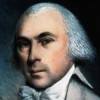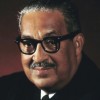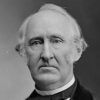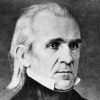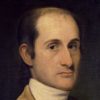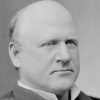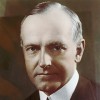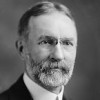Experience has clearly shown that the existing process of law cannot overcome systematic and ingenious discrimination. No law that we now have on the books — and I have helped to put three of them there — can ensure the right to vote when local officials are determined to deny it.
In such a case our duty must be clear to all of us. The Constitution says that no person shall be kept from voting because of his race or his color. We have all sworn an oath before God to support and to defend that Constitution. We must now act in obedience to that oath.Lyndon B. Johnson (1908-1973) American politician, educator, US President (1963-69)
Speech (1965-03-15), “The American Promise,” Joint Session of Congress [14:20]
(Source)
Quotations about:
civil rights
Note not all quotations have been tagged, so Search may find additional quotes on this topic.
Many of the issues of civil rights are very complex and most difficult. But about this there can and should be no argument. Every American citizen must have an equal right to vote. There is no reason which can excuse the denial of that right. There is no duty which weighs more heavily on us than the duty we have to ensure that right.
Yet the harsh fact is that in many places in this country men and women are kept from voting simply because they are Negroes.
Every device of which human ingenuity is capable has been used to deny this right. The Negro citizen may go to register only to be told that the day is wrong, or the hour is late, or the official in charge is absent. And if he persists, and if he manages to present himself to the registrar, he may be disqualified because he did not spell out his middle name or because he abbreviated a word on the application.
And if he manages to fill out an application he is given a test. The registrar is the sole judge of whether he passes this test. He may be asked to recite the entire Constitution, or explain the most complex provisions of State law. And even a college degree cannot be used to prove that he can read and write.
For the fact is that the only way to pass these barriers is to show a white skin.Lyndon B. Johnson (1908-1973) American politician, educator, US President (1963-69)
Speech (1965-03-15), “The American Promise,” Joint Session of Congress [11:51]
(Source)
There is no Negro problem. There is no Southern problem. There is no Northern problem. There is only an American problem. And we are met here tonight as Americans — not as Democrats or Republicans — we are met here as Americans to solve that problem.
This was the first nation in the history of the world to be founded with a purpose. The great phrases of that purpose still sound in every American heart, North and South: “All men are created equal” — “government by consent of the governed” — “give me liberty or give me death.” Well, those are not just clever words, or those are not just empty theories. In their name Americans have fought and died for two centuries, and tonight around the world they stand there as guardians of our liberty, risking their lives.
Those words are a promise to every citizen that he shall share in the dignity of man. This dignity cannot be found in a man’s possessions; it cannot be found in his power, or in his position. It really rests on his right to be treated as a man equal in opportunity to all others. It says that he shall share in freedom, he shall choose his leaders, educate his children, and provide for his family according to his ability and his merits as a human being.
To apply any other test — to deny a man his hopes because of his color or race, his religion or the place of his birth — is not only to do injustice, it is to deny America and to dishonor the dead who gave their lives for American freedom.Lyndon B. Johnson (1908-1973) American politician, educator, US President (1963-69)
Speech (1965-03-15), “The American Promise,” Joint Session of Congress [07:41]
(Source)
In our time we have come to live with moments of great crisis. Our lives have been marked with debate about great issues; issues of war and peace, issues of prosperity and depression. But rarely in any time does an issue lay bare the secret heart of America itself. Rarely are we met with a challenge, not to our growth or abundance, our welfare or our security, but rather to the values and the purposes and the meaning of our beloved Nation.
The issue of equal rights for American Negroes is such an issue. And should we defeat every enemy, should we double our wealth and conquer the stars, and still be unequal to this issue, then we will have failed as a people and as a nation.Lyndon B. Johnson (1908-1973) American politician, educator, US President (1963-69)
Speech (1965-03-15), “The American Promise,” Joint Session of Congress [06:27]
(Source)
At times history and fate meet at a single time in a single place to shape a turning point in man’s unending search for freedom. So it was at Lexington and Concord. So it was a century ago at Appomattox. So it was last week in Selma, Alabama.
There, long-suffering men and women peacefully protested the denial of their rights as Americans. Many were brutally assaulted. One good man, a man of God, was killed.
There is no cause for pride in what has happened in Selma. There is no cause for self-satisfaction in the long denial of equal rights of millions of Americans. But there is cause for hope and for faith in our democracy in what is happening here tonight.
For the cries of pain and the hymns and protests of oppressed people have summoned into convocation all the majesty of this great Government — the Government of the greatest Nation on earth.Lyndon B. Johnson (1908-1973) American politician, educator, US President (1963-69)
Speech (1965-03-15), “The American Promise,” Joint Session of Congress [04:25]
(Source)
A nationally broadcast address, introducing the Voting Rights Act of 1965. The mention of Selma is in reference to the events of "Bloody Sunday" on 7 March 1965.
We will never have true civilization until we have learned to recognize the rights of others.
Maybe the purpose of this sorry and tragic error committed in my native Mississippi by two white adults on an afflicted Negro child is to prove to us whether or not we deserve to survive. Because if we in America have reached that point in our desperate culture when we must murder children, no matter for what reason or what color, we don’t deserve to survive, and probably won’t.
William Faulkner (1897-1962) American novelist
“The Art of Fiction,” Interview by Jean Stein, Paris Review #12 (Spring 1956)
(Source)
Regarding the Emmett Till murder.
The only basis for fearing the votes of men is to fear those men themselves. To deny the right to vote is to increase those fears.
Lyndon B. Johnson (1908-1973) American politician, educator, US President (1963-69)
Speech (1960-03-10), U.S. Senate
(Source)
As Senate Majority Leader.
The civil rights of none shall be abridged on account of religious belief or worship, nor shall any national religion be established, nor shall the full and equal rights of conscience be in any manner, or on any pretext, infringed.
The people shall not be deprived or abridged of their right to speak, to write, or to publish their sentiments; and the freedom of the press, as one of the great bulwarks of liberty, shall be inviolable.
The people shall not be restrained from peaceably assembling and consulting for their common good; nor from applying to the Legislature by petitions, or remonstrances, for redress of their grievances.
James Madison (1751-1836) American statesman, political theorist, US President (1809-17)
Speech Introducing Proposed Constitutional Amendments (1789-06-08)
(Source)
Speech before the House of Representatives, proposing a Bill of Rights amending the US Constitution. This was the first draft of the text that would go on to become the First Amendment.
Since law constitutes the bond of civil society, and the authority of the law is equal, how can the society of citizens be maintained when their condition is not equal? If it be not pleasing to place their wealth on equal footing, and if everyone is endowed with unequal abilities, certainly all of those who are citizens of the same republic ought to have equal rights. For, what is the state but the shared rights of its citizens?
[Quare cum lex sit civilis societatis vinculum, ius autem legis aequale, quo iure societas civium teneri potest, cum par non sit condicio civium? Si enim pecunias aequari non placet, si ingenia omnium paria esse non possunt, iura certe paria debent esse eorum inter se, qui sunt cives in eadem re publica. Quid est enim civitas nisi iuris societas?]
Marcus Tullius Cicero (106-43 BC) Roman orator, statesman, philosopher
De Re Publica [On the Republic, On the Commonwealth], Book 1, ch. 32 / sec. 49 (1.49) (54-51 BC) [tr. @sentantiq (2017)]
(Source)
(Source (Latin)). Alternate translations:
Wherefore as the law is the bond of civil society, and equal rights form that of the law, by what power can a community of citizens be maintained, where their condition is not an equal one? If therefore it is not expedient to equalize fortunes; if the powers of mind cannot be equalized in all, certainly then an equality of rights ought to exist, among those who are citizens of the same republic. For what is a state but a community of rights?
[tr. Featherstonhaugh (1829)]
Wherefore, since the law is the bond of civil society, and the justice of the law equal, by what rule can the association of citizens be held together, if the condition of the citizens be not equal? For if the fortunes of men cannot be reduced to this equality—if genius cannot be equally the property of all—rights, at least, should be equal among those who are citizens of the same republic. For what is a republic but an association of rights?
[tr. Barham (1841)]
Wherefore, since the law is the bond of civil society, and the justice of the law equal, by what rule can the association of citizens be held together, if the condition of the citizens be not equal? For if the fortunes of men cannot be reduced to this equality -- if genius cannot be equally the property of all -- rights, at least, should be equal among those who are citizens of the same republic. For what is a republic but an association of rights?
[tr. Yonge (1853)]
Therefore, since law is the bond which unites the civic association, and the justice enforced by law is the same for all, by what justice can an association of citizens be held together when there is no equality among the citizens? For if we cannot agree to equalize men’s wealth, and equality of innate ability is impossible, the legal rights at least of those who are citizens of the same commonwealth ought to be equal. For what is a State except an association or partnership in justice?
[tr. Keyes (1928)]
Since, then, law is the bond that holds political society together, and since equality of rights is a part of law, by what principle of right can an association of citizens be held together, when the status of these citizens is not equal? For, if it is not thought desirable that property should be equally distributed, and if the natural capacities of all men cannot possibly be equal, yet certainly all who are citizens of the same commonwealth ought to enjoy equal rights in their mutual relations. What, indeed, is a state, if it is not an association of citizens united by law?
[tr. Sabine/Smith (1929)]
Since, then, law is the bond which holds together a community of citizens, and the justice embodied in the law is the same for everyone, by what right can a community of citizens be held together when their status is unequal? If the equalization of wealth is rejected, and the equalization of everybody’s abilities is impossible, legal rights at least must be equal among those who live as fellow-citizens in the same state. For what is a state other than an equal partnership in justice?
[tr. Rudd (1998)]
And therefore, since law is the bond of civil society, and rights under law are equal, then by what right can a society of citizens be held together when the status of citizens is not the same? Even if equality of property is not appealing, and if the mental abilities of all cannot be equal, certainly the rights of all who are citizens of the same commonwealth ought to be equal. What is a state if not the association of citizens under the law?
[tr. Zetzel (1999)]
Our legislators are not sufficiently apprised of the rightful limits of their powers: that their true office is to declare and enforce only our natural rights and duties, & to take none of them from us. No man has a natural right to commit aggression on the equal rights of another; and this is all from which the laws ought to restrain him: every man is under the natural duty of contributing to the necessities of the society; and this is all the laws should enforce on him.
Thomas Jefferson (1743-1826) American political philosopher, polymath, statesman, US President (1801-09)
Letter to Francis W. Gilmer (7 Jun 1816)
(Source)
Today, as in ages past, we are not without tragic proof that the exalted power of some governments to punish manufactured crime dictatorially is the handmaid of tyranny. Under our constitutional system, courts stand against any winds that blow as havens of refuge for those who might otherwise suffer because they are helpless, weak, outnumbered, or because they are non-conforming victims of prejudice and public excitement. Due process of law, preserved for all by our Constitution, commands that no such practice as that disclosed by this record shall send any accused to his death. No higher duty, no more solemn responsibility, rests upon this Court, than that of translating into living law and maintaining this constitutional shield deliberately planned and inscribed for the benefit of every human being subject to our Constitution — of whatever race, creed or persuasion.
Hugo Black (1886-1971) American politician and jurist, US Supreme Court Justice (1937-71)
Chambers v. Florida, 309 U.S. 227, 241 (1940) [majority opinion]
(Source)
Finding coerced confessions that led to the death penalty conviction of four Black men in Florida were a violation of the Due Process clause of the 14th Amendment.
The right of voting for representatives is the primary right by which other rights are protected. To take away this right is to reduce a man to slavery, for slavery consists in being subject to the will of another, and he that has not a vote in the election of representatives is in this case.
Thomas Paine (1737-1809) American political philosopher and writer
“Dissertation on First-Principles of Government” (1795)
(Source)
After all, the true civilization is where every man gives to every other, every right that he claims for himself.
Robert Green Ingersoll (1833-1899) American lawyer, agnostic, orator
Interview, Washington Post (14 Nov 1880)
(Source)
Reprinted in The Works of Robert G. Ingersoll, Vol. 8 "Interviews" (1900).
If we are to lend credence to our mourning, there are acknowledgements that must be made now, albeit belatedly. We must act on the altogether proper assumption that Martin Luther King asked for nothing but that which was his due. He demanded no special concessions, no favored leg up the ladder for his people, despite our impatience with his lifelong prodding of our collective conscience. He asked only for equality, and it is that which we denied him.
We must look beyond riots in the streets to the essential righteousness of what he asked of us. To do less would make his dying as senseless as our own living would be inconsequential.
Rod Serling (1924-1975) American screenwriter, playwright, television producer, narrator
Letter to the Editor, Los Angeles Times (8 Apr 1968)
(Source)
Reprinted in Anne Serling, As I Knew Him: My Dad, Rod Serling (2013).
There is a bitter sadness and special irony that attends the passing of Martin Luther King. Quickly and with ease, we offer up a chorus of posthumous praise — the ritual dirge so time-honored and comfortable and undemanding of anything but rhetoric. In death, we offer the acknowledgement of the man and his dream that we denied him in life.
In his grave, we praise him for his decency — but when he walked amongst us, we responded with no decency of our own. When he suggested that all men should have a place in the sun — we put a special sanctity on the right of ownership and the privilege of prejudice by maintaining that to deny homes to Negroes was a democratic right.
Now we acknowledge his compassion — but we exercised no compassion of our own. When he asked us to understand that men take to the streets out of anguish and hopelessness and a vision of that dream dying, we bought guns and speculated about roving agitators and subversive conspiracies and demanded law and order.
We felt anger at the effects, but did little to acknowledge the causes. We extol all the virtues of the man — but we chose not to call them virtues before his death. And now, belatedly, we talk of this man’s worth — but the judgment comes late in the day as part of a eulogy when it should have been made a matter of record while he existed as a living force.
Rod Serling (1924-1975) American screenwriter, playwright, television producer, narrator
Letter to the Editor, Los Angeles Times (8 Apr 1968)
(Source)
Quoted in Anne Serling, As I Knew Him: My Dad, Rod Serling (2013).
But we must recognize that democracies don’t stop just with elections; they also depend on strong institutions and a vibrant civil society, and open political space, and tolerance of people who are different than you. We have to create an environment where the rights of every citizen, regardless of race or gender, or religion or sexual orientation are not only protected, but respected.
Barack Obama (b. 1961) American politician, US President (2009-2017)
Speech, Young Southeast Asian Leaders Initiative Town Hall, University of Malaya, Kuala Lumpur, Malaysia (27 Apr 2014)
(Source)
No man shall be compelled to frequent or support any religious worship, place, or ministry whatsoever, nor shall be enforced, restrained, molested, or burthened in his body or goods, nor shall otherwise suffer, on account of his religious opinions or belief; but that all men shall be free to profess, and by argument to maintain, their opinions in matters of religion, and that the same shall in no wise diminish, enlarge, or affect their civil capacities.
Thomas Jefferson (1743-1826) American political philosopher, polymath, statesman, US President (1801-09)
“Virginia Statute for Religious Freedom” (18 Jun 1779; enacted 16 Jan 1786)
(Source)
Others again who say that regard should be had for the rights of fellow-citizens, but not of foreigners, would destroy the universal brotherhood of mankind; and, when this is annihilated, kindness, generosity, goodness, and justice must utterly perish; and those who work all this destruction must be considered as wickedly rebelling against the immortal gods. For they uproot the fellowship which the gods have established between human beings.
[Qui autem civium rationem dicunt habendam, externorum negant, ii dirimunt communem humani generis societatem; qua sublata beneficentia, liberalitas, bonitas, iustitia funditus tollitur; quae qui tollunt, etiam adversus deos immortales impii iudicandi sunt. Ab iis enim constitutam inter homines societatem evertunt.]
Marcus Tullius Cicero (106-43 BC) Roman orator, statesman, philosopher
De Officiis [On Duties; On Moral Duty; The Offices], Book 3, ch. 6 (3.6) / sec. 28 (44 BC) [tr. Miller (1913)]
(Source)
(Source (Latin)). Alternate translation:
Others there are, who are ready to confess that they ought to bear such a regard to fellow-citizens, but by no means allow of it in relation to strangers: now these men destroy that universal society of all mankind, which, if once taken away, kindness, liberality, justice, and humanity must utterly perish; which excellent virtues whoever makes void, is chargeable with impiety towards the immortal gods; for he breaks that society which they have established and settled amongst men.
[tr. Cockman (1699)]
They, too, who hold that a regard ought to be paid to our fellow-citizens, but deny it to foreigners, break asunder the common society of mankind, by which beneficence, liberality, goodness, justice, are entirely abolished. They who destroy these virtues, are to be charged with impiety towards the immortal gods. For, by such principles, they subvert established intercourse among men.
[tr. McCartney (1798)]
They, again, who say that a regard ought to be had with fellow citizens, but deny that it ought to foreigners, break up the common society of the human race, which being withdrawn, beneficence, liberality, goodness, justice are utterly abolished. But they who tear up these things should be judged impious, even towards the immortal gods; for they overturn the society established by them among men.
[tr. Edmonds (1865)]
Those, too, who say that account is to be taken of citizens, but not of foreigners, destroy the common sodality of the human race, which abrogated, beneficence, liberality, kindness, justice, are removed from their very foundations. And those who remove them are to be regarded as impious toward the immortal gods; for they overturn the fellowship established among men by the gods.
[tr. Peabody (1883)]
Others again who deny the rights of aliens while respecting those of their countrymen, destroy the universal brotherhood of mankind which involves in its ruin beneficence, liberality, goodness and justice. To destroy these virtues is to sin against the immortal gods. It is to subvert that society which the gods established among men.
[tr. Gardiner (1899)]
In the same way, those who say that one standard should be applied to fellow citizens but another to foreigners, destroy the common society of the human race. When that disappears, good deeds, generosity, kindness, and justice are also removed root and branch. We must draw the conclusion that people who do away with these qualities are disrespectful even against the immortal gods. They destroy the cooperation among men which the gods instituted.
[tr. Edinger (1974)]
Wish they’d let us write about the Little Rock situation. Funny, there were about seven or eight dramatic treatments of the Hungarian uprising but the spectacle of adult whites taunting a couple of defenseless little Negro girls is considered controversial. Wrong? That’s not controversy. If anybody takes the pro side in that particular battle, they’d better change flags.
Rod Serling (1924-1975) American screenwriter, playwright, television producer, narrator
Comment (1957), in Anne Serling, As I Knew Him: My Dad, Rod Serling (2013)
(Source)
Serling frequently complained of TV commercial sponsors (and the networks that depended on them) refusing to allow any TV dramas that might offend viewers, especially Southerners -- in this instance, referring to the controversy over Arkansas school integration.
Who are those who are really disloyal? Those who inflame racial hatreds, who sow religious and class dissensions. Those who subvert the Constitution by violating the freedom of the ballot box. Those who make a mockery of majority rule by the use of the filibuster. Those who impair democracy by denying equal educational facilities. Those who frustrate justice by lynch law or by making a farce of jury trials. Those who deny freedom of speech and of the press and of assembly. Those who press for special favors against the interest of the commonwealth. Those who regard public office as a source of private gain. Those who would exalt the military over the civil. Those who for selfish and private purposes stir up national antagonisms and expose the world to the ruin of war.
The Bill of Rights was not written into the Constitution in order to protect governments from “trouble,” but so that the people might have a legitimate method of causing trouble to governments they no longer trusted.
Henry Steele Commager (1902-1998) American historian, writer, activist
Letter to the Editor, New York Times (17 Jun 1971)
(Source)
Many of our moral and political policies are designed to preempt what we know to be the worst features of human nature. The checks and balances in a democracy, for instance, were invented in explicit recognition of the fact that human leaders will always be tempted to arrogate power to themselves. Likewise, our sensitivity to racism comes from an awareness that groups of humans, left to their own devices, are apt to discriminate and oppress other groups, often in ugly ways. History also tells us that a desire to enforce dogma and suppress heretics is a recurring human weakness, one that has led to recurring waves of gruesome oppression and violence. A recognition that there is a bit of Torquemada in everyone should make us wary of any attempt to enforce a consensus or demonize those who challenge it.
Steven Pinker (b. 1954) Canadian-American cognitive psychologist, linguist, author
Introduction to John Brockman (ed.), What is Your Dangerous Idea? (2007)
(Source)
I am the world’s original gradualist. I just think ninety-odd years is gradual enough.
Thurgood Marshall (1908-1993) American lawyer, US Supreme Court Justice (1967-1991)
Quoted in I. F. Stone’s Weekly (19 May 1958)
(Source)
In response to Eisenhower's speech to the National Newspaper Publishers Association, where the President called for "patience and forbearance" on civil rights reform.
Also that year, during the effort by Autherine Lucy to be admitted to the segregated University of Alabama, Marshall similarly quipped, "Maybe you can't override prejudice overnight, but the Emancipation Proclamation was issued in 1864, ninety-odd years ago. I believe in gradualism, and I also believe that ninety-odd years is pretty gradual."
Be calm when the unthinkable arrives. Modern tyranny is terror management. When the terrorist attack comes, remember that authoritarians exploit such events in order to consolidate power. The sudden disaster that requires the end of checks and balances, the dissolution of political parties, the suspension of freedom of expression, the right to a fair trial, and so on, is the oldest trick in the Hitlerian book. DO NOT FALL FOR IT.
Timothy Snyder (b. 1969) American historian, author
On Tyranny: Twenty Lessons from the Twentieth Century (2017)
(Source)
As President of our country and Commander-in-Chief of our military, I accept that people are going to call me awful things every day, and I will always defend their right to do so.
Barack Obama (b. 1961) American politician, US President (2009-2017)
Speech, United Nations (25 Sep 2012)
(Source)
The time to assert rights is when they are denied; the men to assert them are those to whom they are denied. The community which dares not protect its humblest and most hated member in the free utterance of his opinions, no matter how false or hateful, is only a gang of slaves.
Wendell Phillips (1811-1884) American abolitionist, orator, social activist
“Mobs and Education,” Speech, Twenty-Eighth Congregational Society, Boston (16 Dec 1860)
(Source)
As reported in the Liberator (21 Dec 1860).
Note: There is a synthetic quotation frequently attributed to Phillips that is a actually combination of this one, and these three others:
No matter whose lips that would speak, they must be free and ungagged. The community which dares not protect its humblest and most hated member in the free utterance of his opinions, no matter how false or hateful, is only a gang of slaves. If there is anything in the universe that can’t stand discussion, let it crack.
While Phillips often reused rhetorical elements (as most orators do), this particular combination appears to be combination not actually found in his speeches or writing.
By the theory of our Government majorities rule, but this right is not an arbitrary or unlimited one. It is a right to be exercised in subordination to the Constitution and in conformity to it. One great object of the Constitution was to restrain majorities from oppressing minorities or encroaching upon their just rights. Minorities have a right to appeal to the Constitution as a shield against such oppression.
James K. Polk (1795-1849) American lawyer, politician, US President (1845-1849)
Inaugural Address (4 Mar 1845)
(Source)
I can hardly believe that any person can be found who will not admit that every one of these provisions is just. They are all asserted, in some form or other, in our Declaration or organic law. But the Constitution limits only the action of Congress, and is not a limitation on the States. This amendment supplies that defect, and allows Congress to correct the unjust legislation of the States, so far that the law which operates upon one man shall operate equally upon all. Whatever law punishes a white man for a crime shall punish the black man precisely in the same way and to the same degree. Whatever law protects the white man shall afford equal protection to the black man. Whatever means of redress is afforded to one shall be afforded to all. Whatever law allows the white man to testify in court shall allow the man of color to do the same. These are great advantages over their present codes.
James A. Garfield (1831-1881) US President (1881), lawyer, lay preacher, educator
Speech, House of Representatives (4 Apr 1871)
(Source)
On the proposed 14th Amendment to the US Constitution, which forbade to each state the ability to "deny to any person within its jurisdiction the equal protection of the laws."
Although in our country the Chief Magistrate must almost of necessity be chosen by a party and stand pledged to its principles and measures, yet in his official action he should not be the President of a part only, but of the whole people of the United States. While he executes the laws with an impartial hand, shrinks from no proper responsibility, and faithfully carries out in the executive department of the Government the principles and policy of those who have chosen him, he should not be unmindful that our fellow-citizens who have differed with him in opinion are entitled to the full and free exercise of their opinions and judgments, and that the rights of all are entitled to respect and regard.
James K. Polk (1795-1849) American lawyer, politician, US President (1845-1849)
Inaugural Address (4 Mar 1845)
(Source)
Every man of every color and description has a natural right to freedom.
John Jay (1745-1829) American statesman, diplomat, abolitionist, politician, Chief Justice (1789-1795)
Letter to J. C. Dongan (27 Feb 1792)
(Source)
But liberty is no negation. It is a substantial, tangible reality. It is the realization of those imperishable truths of the Declaration, “that all men are created equal”; that the sanction of all just government is “the consent of the governed.” Can these be realized until each man has a right to be heard on all matters relating to himself? The plain truth is, that each man knows his own interest best. It has been said, “If he is compelled to pay, if he may be compelled to fight, if he be required implicitly to obey, he should be legally entitled to be told what for; to have his consent asked, and his opinion counted at what it is worth. There ought to be no pariahs in a full-grown and civilized nation, no persons disqualified except through their own default.” I would not insult your intelligence by discussing so plain a truth, had not the passion and prejudice of this generation called in question the very axioms of the Declaration.
James A. Garfield (1831-1881) US President (1881), lawyer, lay preacher, educator
“Suffrage and Safety,” speech, Ravenna, Ohio (4 Jul 1865)
(Source)
On extending the vote to newly-freed slaves.
But in view of the Constitution, in the eye of the law, there is in this country no superior, dominant, ruling class of citizens. There is no caste here. Our Constitution is color-blind, and neither knows nor tolerates classes among citizens. In respect of civil rights, all citizens are equal before the law. The humblest is the peer of the most powerful. The law regards man as man, and takes no account of his surroundings or of his color when his civil rights as guaranteed by the supreme law of the land are involved.
John Marshall Harlan (1833-1911) American lawyer, politician, Supreme Court Justice (1877-1911)
Plessy v. Ferguson 163 U.S. 537, 559 (1896) [dissent]
(Source)
The poorest man may in his cottage bid defiance to all the forces of the Crown. It may be frail — its roof may shake — the wind may blow through it — the storm may enter — the rain may enter — but the King of England cannot enter! — all his force dares not cross the threshold of the ruined tenement!
William Pitt the Elder (1708-1778) British statesman, orator [1st Earl of Chatham]
Speech on the Excise Bill, House of Commons (Mar 1763)
(Source)
It is a trite yet urgently true observation that if America is to remain a first-class nation, it cannot have second-class citizens.
Martin Luther King, Jr. (1929-1968) American clergyman, civil rights leader, social activist, preacher
“The Negro and the American Dream,” speech, North Carolina NAACP, Charlotte (1960-09-25)
(Source)
King used this line in several of his speeches at the time.
Negroes are not the only poor in the nation. There are nearly twice as many white poor as Negro, and therefore the struggle against poverty is not involved solely with color or racial discrimination but with elementary economic justice.
Martin Luther King, Jr. (1929-1968) American clergyman, civil rights leader, social activist, preacher
Speech to Shop Stewards, Local 815, Teamsters and the Allied Trades Council, New York City (2 May 1967)
(Source)
I’d be the first to say that some historical victories have been won by violence; the U.S. Revolution is certainly one of the foremost. But the Negro revolution is seeking integration, not independence. Those fighting for independence have the purpose to drive out the oppressors. But here in America, we’ve got to live together. We’ve got to find a way to reconcile ourselves to living in community, one group with the other. The struggle of the Negro in America, to be successful, must be waged with resolute efforts, but efforts that are kept strictly within the framework of our democratic society. This means reaching, educating and moving large enough groups of people of both races to stir the conscience of the nation.
Martin Luther King, Jr. (1929-1968) American clergyman, civil rights leader, social activist, preacher
Playboy interview (Jan 1965)
(Source)
One hundred and eighty-eight years ago this week a small band of valiant men began a long struggle for freedom. They pledged their lives, their fortunes, and their sacred honor not only to found a nation, but to forge an ideal of freedom — not only for political independence, but for personal liberty — not only to eliminate foreign rule, but to establish the rule of justice in the affairs of men. That struggle was a turning point in our history. Today in far corners of distant continents, the ideals of those American patriots still shape the struggles of men who hunger for freedom. This is a proud triumph. Yet those who founded our country knew that freedom would be secure only if each generation fought to renew and enlarge its meaning.
Lyndon B. Johnson (1908-1973) American politician, educator, US President (1963-69)
Speech (1964-07-02), Signing of the Civil Rights Act of 1964, Washington, D.C.
(Source)
In a sense we’ve come to our nation’s capital to cash a check. When the architects of our republic wrote the magnificent words of the Constitution and the Declaration of Independence, they were signing a promissory note to which every American was to fall heir. This note was a promise that all men, yes, black men as well as white men, would be guaranteed the “unalienable Rights” of “Life, Liberty and the pursuit of Happiness.”
It is obvious today that America has defaulted on this promissory note, insofar as her citizens of color are concerned. Instead of honoring this sacred obligation, America has given the Negro people a bad check, a check which has come back marked “insufficient funds.”
But we refuse to believe that the bank of justice is bankrupt. We refuse to believe that there are insufficient funds in the great vaults of opportunity of this nation. And so, we’ve come to cash this check, a check that will give us upon demand the riches of freedom and the security of justice.
Martin Luther King, Jr. (1929-1968) American clergyman, civil rights leader, social activist, preacher
“I Have a Dream,” speech, Washington, DC (1963-08-28)
(Source)
True liberty shows itself to best advantage in protecting the rights of others, and especially of minorities.
Theodore Roosevelt (1858-1919) American politician, statesman, conservationist, writer, US President (1901-1909)
“Biological Analogies in History,” Romanes Lecture, Oxford University (7 Jun 1910)
(Source)
Where after all do universal human rights begin? In small places, closes to home — so close and so small that they cannot be seen on any map of the world. Yet they are the world of the individual person: The neighborhood he lives in; the school or college he attends; the factory, farm or office where he works. Such are the places where every man, woman, and child seeks equal justice, equal opportunity, equal dignity without discrimination. Unless these rights have meaning there, they have little meaning anywhere. Without concerted citizen action to uphold them close to home, we shall look in vain for progress in the larger world.
We must show by our behavior that we believe in equality and justice and that our religion teaches faith and love and charity to our fellow men. Here is where each of us has a job to do that must be done at home, because we can lose the battle on the soil of the United States just as surely as we can lose it in any one of the countries of the world.
In its main features the Declaration of Independence is a great spiritual document. It is a declaration not of material but of spiritual conceptions. Equality, liberty, popular sovereignty, the rights of man — these are not elements which we can see and touch. They are ideals. They have their source and their roots in the religious convictions. They belong to the unseen world. Unless the faith of the American people in these religious convictions is to endure, the principles of our Declaration will perish. We can not continue to enjoy the result if we neglect and abandon the cause.
Calvin Coolidge (1872-1933) American lawyer, politician, US President (1925-29)
“Speech on the Occasion of the 150th Anniversary of the Declaration of Independence” (5 Jul 1926)
(Source)
The doctrine of the Declaration of Independence, predicated upon the glory of man, and the corresponding duty of society, is that the rights of citizens are to be protected with every power and resource of the State, and a government that does any less is false to the teachings of that great document, of the name American.
We must never cease to proclaim in fearless tones the great principles of freedom and the rights of man which are the joint inheritance of the English-speaking world and which through Magna Carta, the Bill of Rights, the Habeas Corpus, trial by jury, and the English common law find their most famous expression in the American Declaration of Independence.
The right to be heard would be, in many cases, of little avail if it did not comprehend the right to be heard by counsel. Even the intelligent and educated layman has small and sometimes no skill in the science of law. If charged with crime, he is incapable, generally, of determining for himself whether the indictment is good or bad. He is unfamiliar with the rules of evidence. Left without the aid of counsel he may be put on trial without a proper charge, and convicted upon incompetent evidence, or evidence irrelevant to the issue or otherwise inadmissible. He lacks both the skill and knowledge adequately to prepare his defense, even though he have a perfect one. He requires the guiding hand of counsel at every step in the proceedings against him. Without it, though he be not guilty, he faces the danger of conviction because he does not know how to establish his innocence. If that be true of men of intelligence, how much more true is it of the ignorant and illiterate, or those of feeble intellect.
By liberty I mean the assurance that every man shall be protected in doing what he believes his duty against the influence of authority and majorities, custom and opinion. The State is competent to assign duties and draw the line between good and evil only in its immediate sphere. Beyond the limits of things necessary for its well-being, it can only give indirect help to fight the battle of life by promoting the influences which prevail against temptation, — religion, education, and the distribution of wealth.
John Dalberg, Lord Acton (1834-1902) British historian
“The History of Freedom in Antiquity,” Speech, Bridgenorth Institute (28 Feb 1877)
(Source)
A rioter with a Molotov cocktail in his hands is not fighting for civil rights any more than a Klansman with a sheet on his back and a mask on his face. They are both more or less what the law declares them: lawbreakers, destroyers of constitutional rights and liberties, and ultimately destroyers of a free America.
Lyndon B. Johnson (1908-1973) American politician, educator, US President (1963-69)
Speech (1965-08-20), White House Conference on Equal Employment Opportunity, Washington, D.C.
(Source)
Discussing the Watts Riots in Los Angeles (11-16 August).
Convinced that the republican is the only form of government which is not eternally at open or secret war with the rights of mankind, my prayers & efforts shall be cordially distributed to the support of that we have so happily established.
Thomas Jefferson (1743-1826) American political philosopher, polymath, statesman, US President (1801-09)
Letter to William Hunter (11 Mar 1790)
(Source)
All, too, will bear in mind this sacred principle, that though the will of the majority is in all cases to prevail, that will to be rightful must be reasonable; that the minority possess their equal rights, which equal law must protect, and to violate would be oppression.
Thomas Jefferson (1743-1826) American political philosopher, polymath, statesman, US President (1801-09)
Inaugural Address (4 Mar 1801)
(Source)
Whatever the laws may provide, however lofty may be their sentiments, a man without a vote is a man without protection; he is virtually helpless.
Lyndon B. Johnson (1908-1973) American politician, educator, US President (1963-69)
Speech (1960-03-10), U.S. Senate
(Source)
As Senate Majority Leader.
You do not wipe away the scars of centuries by saying: “Now, you are free to go where you want, do as you desire, and choose the leaders you please.” You do not take a man who for years has been hobbled by chains, liberate him, bring him to the starting line of a race, saying, “You are free to compete with all the others,” and still justly believe you have been completely fair. Thus it is not enough just to open the gates of opportunity. All our citizens must have the ability to walk through those gates.
This is the next and the more profound stage of the battle for civil rights. We seek not just freedom but opportunity. We seek not just legal equity but human ability, not just equality as a right and a theory but equality as a fact and equality as a result.
Lyndon B. Johnson (1908-1973) American politician, educator, US President (1963-69)
Speech (1965-06-04), Commencement, Howard University
(Source)
On Affirmative Action.




